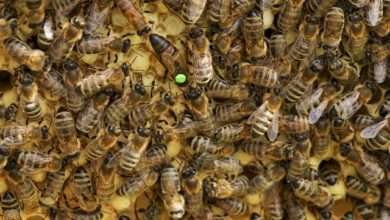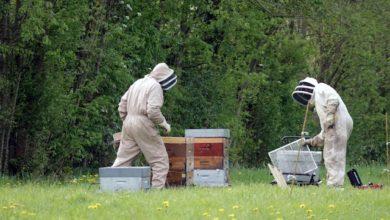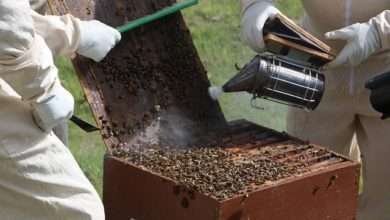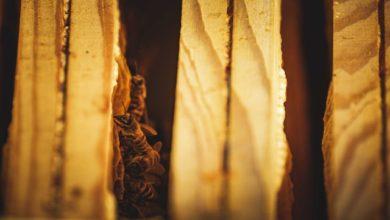When Should I Order Bees?
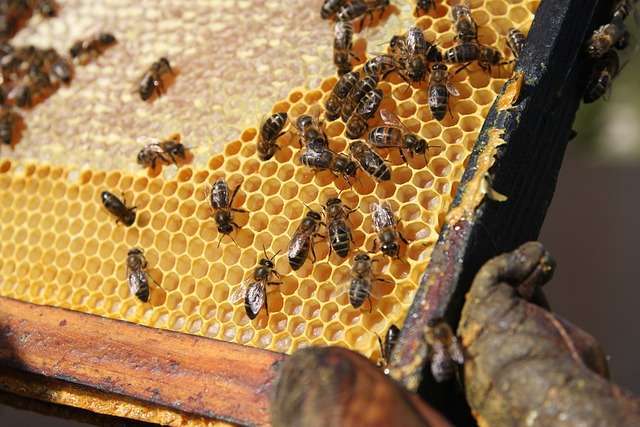
Beekeeping is an incredibly rewarding and important practice that contributes to the health of our environment and the production of delicious honey. However, for both beginner and experienced beekeepers, the process of ordering bees can be a daunting one. In this article, we will explore the key considerations for determining the best time to order bees, the factors to consider when making this decision, the types of bees available for order, and the potential impact of ordering bees at different times of the year.
The Importance of Ordering Bees for Beekeepers
Whether you are an experienced beekeeper or just starting out on this delightful journey, the process of ordering bees is an essential aspect of establishing and maintaining a thriving hive.
Overview of the Factors to Consider When Ordering Bees:
When ordering bees, several crucial aspects should be taken into account to ensure a successful beekeeping venture. It is important to consider the following factors:
- Bee species: The choice of bee species, such as the Italian, Carniolan, or Russian honey bees, plays a significant role in the adaptability, behavior, and productivity of your hive. Understanding the traits of each species will assist in selecting the most suitable bees for your specific needs.
- Package or nuc: Beekeepers can choose between purchasing packaged bees or nucleus colonies (nucs). Each option has its own pros and cons, and the decision typically depends on the experience level and preferences of the beekeeper. Package bees are more accessible, while nucs offer a well-established colony with a queen.
- Supplier reputation: It is crucial to research and select a reputable supplier when ordering bees. A reliable supplier ensures the bees are of high quality, disease-free, and properly packaged for safe transportation. Word-of-mouth recommendations or seeking advice from local beekeeping associations can help in finding a dependable source.
The Different Types of Bees Available for Order:
Before placing an order, it is essential to become familiar with the different types of bees available. Here are a few common options:
- Italian honey bees: Known for their gentle disposition and high productivity, Italian honey bees are a popular choice among beekeepers. They adapt well to various climates and are excellent foragers, making them ideal for honey production.
- Carniolan honey bees: Originating from Slovenia, Carniolan honey bees are known for their exceptional overwintering capabilities and resistance to pests. They are gentle bees that excel in brood production, making them suitable for areas with shorter nectar flows.
- Russian honey bees: Renowned for their resistance to Varroa mites, Russian honey bees have become increasingly popular. These bees are hardy in colder climates, exhibit excellent hygiene behavior, and demonstrate good honey production capabilities.
The Benefits of Ordering Bees from a Reputable Source:
Ordering bees from a reputable source offers several advantages for beekeepers:
- Quality assurance: Reputable suppliers prioritize the health and well-being of their bees, ensuring that you receive bees free from diseases and pests. This decreases the risk of introducing problems into your colony and increases the chances of a successful start.
- Support and guidance: Trustworthy suppliers often provide valuable support and guidance to beekeepers, especially those who are new to the hobby. They may offer resources, advice on hive management, and assistance in resolving any issues that may arise during the beekeeping process.
- Guarantee and replacement policy: In case any issues arise with the delivered bees, reliable suppliers usually have a guarantee and replacement policy. This provides peace of mind, knowing that you can seek assistance or receive replacement bees if needed.
The Potential Risks of Ordering Bees at the Wrong Time:
Ordering bees at the wrong time can pose risks to both the bees and the beekeeper:
- Climate suitability: Bees require specific climatic conditions to thrive. Ordering bees too early or too late in the season might subject them to unfavorable weather, potentially resulting in bee stress, reduced productivity, or even loss of the colony.
- Availability: Ordering bees during peak seasons can be challenging, as demand often exceeds supply. It is advisable to plan ahead and place orders early to secure your preferred bee species and the desired number of colonies.
Ordering bees for beekeeping is a vital step in establishing a successful and prosperous hive. By considering the factors discussed, such as bee species, reputable suppliers, and appropriate timing, you can enhance the chances of a thriving and productive beekeeping endeavor.
Remember, the quality and health of your bees are instrumental in maintaining a vibrant hive and enjoying the numerous rewards that beekeeping offers.
The Best Time to Order Bees
When it comes to ordering bees, timing is crucial. Here, we will explore the factors to consider when deciding the best time to order bees, including climate, availability, timing in the beekeeping season, impact on colony development, and the potential challenges and benefits of ordering bees during different times of the year.
- Consideration of Climate and Weather Conditions: One of the key elements to bear in mind when ordering bees is the climate and weather conditions in your area. Bees need favorable conditions to thrive, so it is essential to assess if your climate is suitable for beekeeping. Understanding the temperature ranges, precipitation levels, and seasonal patterns in your region will help you determine the best time to order bees.
- Availability of Bee Packages and Nucs: Another important factor is the availability of bee packages and nucs (nucleus colonies). These are the two primary ways of acquiring bees for your hive. Bee packages are essentially a box of bees containing workers, drones, and a queen, while nucs consist of a small colony with frames filled with bees, brood, and food stores. It is recommended to check with local suppliers or beekeepers’ associations to determine when they have these options available for purchase.
- Timing in Relation to the Beekeeping Season: The timing of your bee order should align with the beekeeping season in your area. The beekeeping season varies depending on the geographic location and is influenced by factors such as local flora, temperature, and length of winter. Generally, it is advisable to order bees in the early spring when temperatures start to rise, and nectar sources become more abundant. This allows the bees to establish themselves and take full advantage of the blooming season.
- The Impact of Ordering Bees on Colony Development: Ordering bees at the appropriate time can significantly impact colony development. By ordering early in the season, you provide the bees with ample time to establish their hive, build comb, lay eggs, and gather resources. This enables the colony to reach a robust population before the main nectar flow begins, maximizing honey production and overall hive strength.
- Potential Challenges and Benefits of Ordering Bees During Different Times of the Year: Ordering bees during different times of the year presents both challenges and benefits. Ordering in early spring offers the advantage of having strong and active colonies during the peak of nectar flow, increasing the chances of a successful honey harvest. However, it is important to ensure the colony has enough time to build up before winter arrives.
Ordering bees in late spring or early summer may provide a faster kickstart to the hive, but it also comes with the risk of missing out on the initial nectar flow period.
Additionally, ordering bees in fall might be suitable for replacing a weak or lost colony, but it might be challenging for them to establish themselves before winter. Many beekeepers will opt to order their bees in December or January, for an early spring delivery.
Factors to Consider When Ordering Bees
Ordering bees is a crucial step in establishing a successful and thriving beekeeping operation. However, there are several factors that beekeepers need to consider before placing their orders.
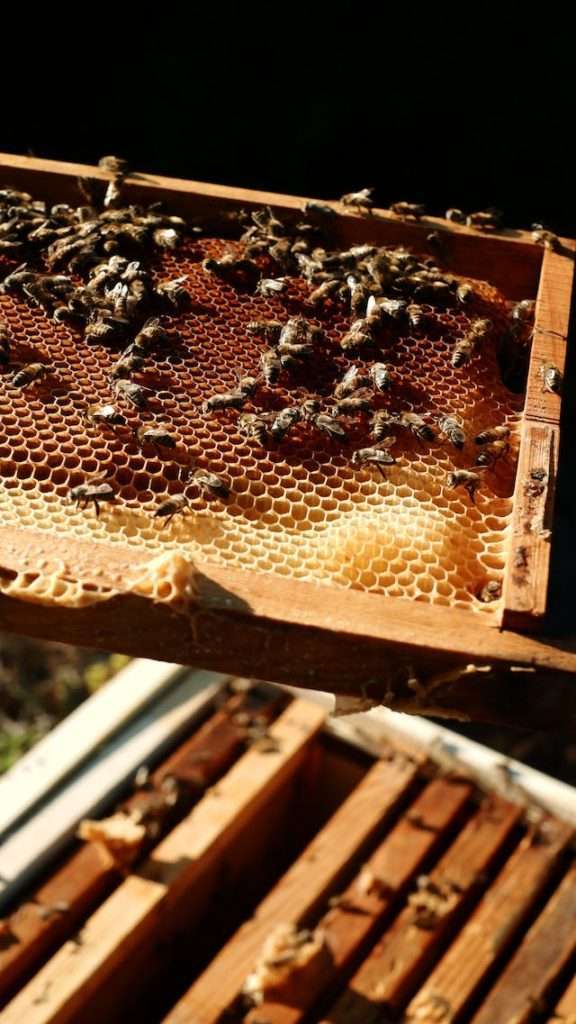
The Potential Impact of Transportation and Shipping on Bee Health:
Minimizing Stress:
- Inquire about the transportation methods used by the supplier to ensure that the bees are not subjected to excessive stress during shipping.
- Choose suppliers who prioritize the well-being of the bees during transportation to avoid negative impacts on their health and productivity.
Timely Delivery:
- Select suppliers who have a track record of delivering bees promptly and efficiently.
- Timely delivery is crucial to minimize the time the bees spend in transit, reducing the risks associated with prolonged transportation.
Cost and Budget Considerations When Ordering Bees:
Pricing:
- Compare prices from multiple suppliers to find the best deal without compromising on the quality of bees.
- Keep in mind that excessively low prices may indicate compromised bee health or questionable breeding practices.
Additional Costs:
- Consider additional costs such as shipping fees, taxes, or any necessary equipment needed to house the bees.
- Calculate the overall cost of the order, including any potential extra expenses, to ensure it aligns with your budget.
Ordering bees from a reputable and trustworthy source is crucial for the success of your beekeeping venture. By considering factors such as the supplier’s reputation, transportation methods, cost considerations, bee species suitability, and additional support, you can confidently make an informed decision when placing your order.
Types of Bees Available for Order
In the world of beekeeping, selecting the right type of bees is crucial to the success of your apiary. Whether you are a beginner or an experienced beekeeper, understanding the different options available when it comes to ordering bees is essential.
Packages of Bees: One popular option for beekeepers is ordering packages of bees. These packages typically include a predetermined number of worker bees and a queen. The workers are usually a mixture of young and adult bees that have been shaken off frames in another bee yard. These bees are then collected and packaged for shipment. Ordering packages of bees is a traditional and relatively straightforward method of establishing a hive.
Advantages:
- Availability: Packages of bees are readily available from various bee suppliers.
- Easy to Install: Installing a package of bees is a simple process and requires minimal effort.
- Establishing New Colonies: Packages of bees allow beekeepers to establish new colonies quickly.
Disadvantages:
- Queen Compatibility: Sometimes, the queen included in the package may not be readily accepted by the worker bees, leading to potential issues within the hive.
- Increased Stress: The process of gathering bees from different hives and packaging them can cause stress and potential harm to the bees.
- Limited Genetic Diversity: Packages of bees may not provide the same genetic diversity as other types of bee orders.
Nucleus Colonies (Nucs): Another option for obtaining bees is through nucleus colonies, commonly known as “nucs.” Nucs are essentially small existing colonies that consist of several frames containing worker bees, brood, stores of pollen and honey, and a queen. Nucleus colonies offer a more established and self-sufficient option compared to packages of bees. This is often the best choice for beginning beekeepers.
Most times, nucs are offered as either 3-frame or 5-frame options. I, personally, have had much more success with 5-frame nucs.
Advantages:
- Established Colonies: Nucleus colonies already have a laying queen, brood, and food stores, providing a head start for a new hive’s development.
- Increased Colony Expansion: With a nuc, beekeepers can experience faster colony expansion, leading to potential honey production sooner.
- Queen Acceptance: Since the queen is already with her worker bees, the acceptance rate is typically higher compared to introducing a new queen to unrelated workers.
Disadvantages:
- Limited Availability: Nucleus colonies may be in higher demand and limited in supply, requiring early reservations.
- Cost: Nucs are generally more expensive than packages of bees due to the additional resources they provide.
- Potential Disease Transfer: As you introduce new bees from a different source, there is a slight risk of introducing potential diseases or pests to your existing colonies.
Queen Bees: Sometimes, beekeepers may opt to order queen bees separately. Queen bees are vital for colony success, as they lay eggs and regulate the overall hive population. Queen bees can be ordered to replace a failing queen or to create new colonies by introducing them to worker bees.
Advantages:
- Specific Genetics: Ordering queen bees allows beekeepers to select bees with desired genetic traits, such as honey production, disease resistance, or specific behavior.
- Swarm Prevention: Introducing a new queen can help prevent swarming in an overpopulated hive.
- Controlled Introduction: Queen bees give beekeepers more control during colony establishment or queen replacement.
Disadvantages:
- Worker Acceptance: Introducing a new queen to existing worker bees can sometimes be challenging, potentially resulting in rejection.
- Time Constraints: Ordering queen bees separately means waiting for their arrival and coordinating their introduction into the hive promptly.
- Cost: Ordering queen bees separately can be more expensive than other options, as the queen’s value lies in her genetic traits and quality.
Potential Advantages and Disadvantages: Each type of bee order has its own set of advantages and disadvantages. Understanding these factors can help beekeepers make an informed decision based on their specific needs and goals. Consider the availability, ease of installation, genetic diversity, and stress factors associated with different types of bee orders.
Compatibility with Existing Colonies and Beekeeping Practices: Before placing an order for bees, it is crucial to consider the compatibility of different bee types with your existing colonies and beekeeping practices. Factors such as temperament, disease resistance, productivity, and potential crossbreeding should be evaluated to ensure harmony within your apiary. Consulting experienced beekeepers or local experts can provide valuable insights into the compatibility of different bee types.
Selecting the right type of bees for your beekeeping venture is a significant decision that can impact the success of your apiary. Whether you choose packages of bees, nucleus colonies, or queen bees, understanding the advantages and disadvantages of each option is crucial.
Conclusion
The decision of when to order bees is a complex one that requires careful consideration of several key factors. By planning ahead and making informed decisions, beekeepers can set themselves up for success and contribute to the health and productivity of their apiary for years to come.
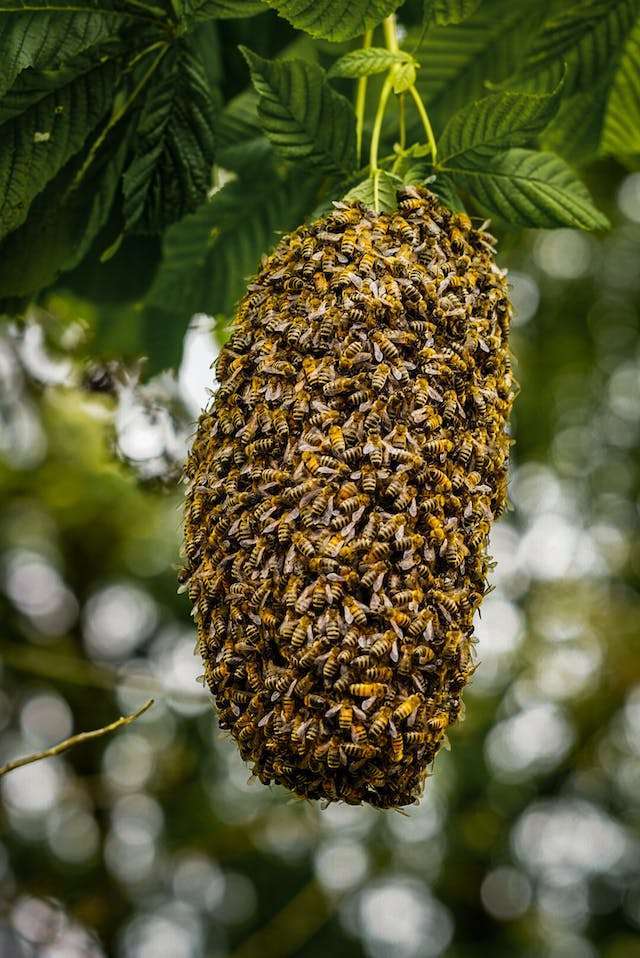
FAQ:
What factors should I consider when deciding when to order bees?
- Choosing the optimal time to order bees depends on the availability of locally adapted bee species, your geographical location, and the climate in your area. It is best to order bees during the off-season to ensure their availability and to allow ample time for proper hive preparations.
How can I determine the right quantity of bees to order?
- The number of bees to order depends on the size and capacity of your existing or planned beehives. Generally, a standard beehive requires a package or nuc of bees, which includes approximately 10,000-12,000 worker bees and a queen. For larger hives, consider ordering multiple packages or nucs accordingly.
What are the different types of bee orders available?
- There are primarily two types of bee orders: package bees and nucleus colonies (nucs). Package bees come with a predetermined number of worker bees and a queen, often in screened boxes, while nucs are established colonies containing bees, brood, and a laying queen in a small hive box. The choice depends on personal preference and the level of experience.
Can I order bees online, and are there any risks involved?
- Yes, you can order bees online from reputable suppliers. However, it is crucial to thoroughly research and select suppliers with positive reviews, as live bee shipments are sensitive and should be handled with care. Ensure the supplier follows proper practices for packaging and shipping to minimize any potential risks.
Should I pre-order bees in advance, and how far ahead?
- Pre-ordering bees is highly recommended to guarantee availability. It is advisable to place your order around 3-6 months before you plan to receive the bees. This allows the supplier to reserve the necessary quantity and prepare the shipment accordingly.
When is the best time to order bees?
- The best time to order bees depends on several factors, including climate, availability of bee packages and nucs, and the timing in relation to the beekeeping season. It’s important to consider these factors and plan ahead to ensure the best possible outcome for your bees.
